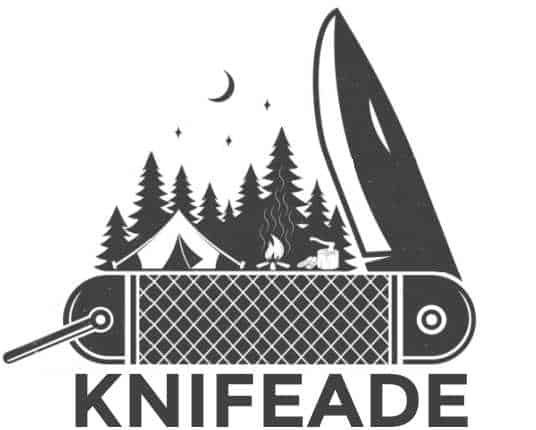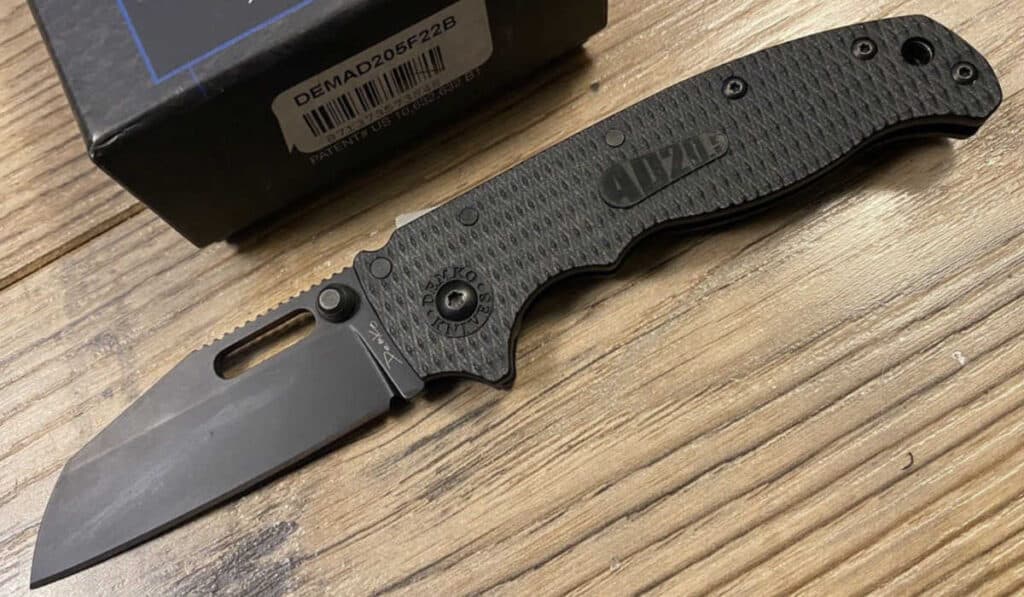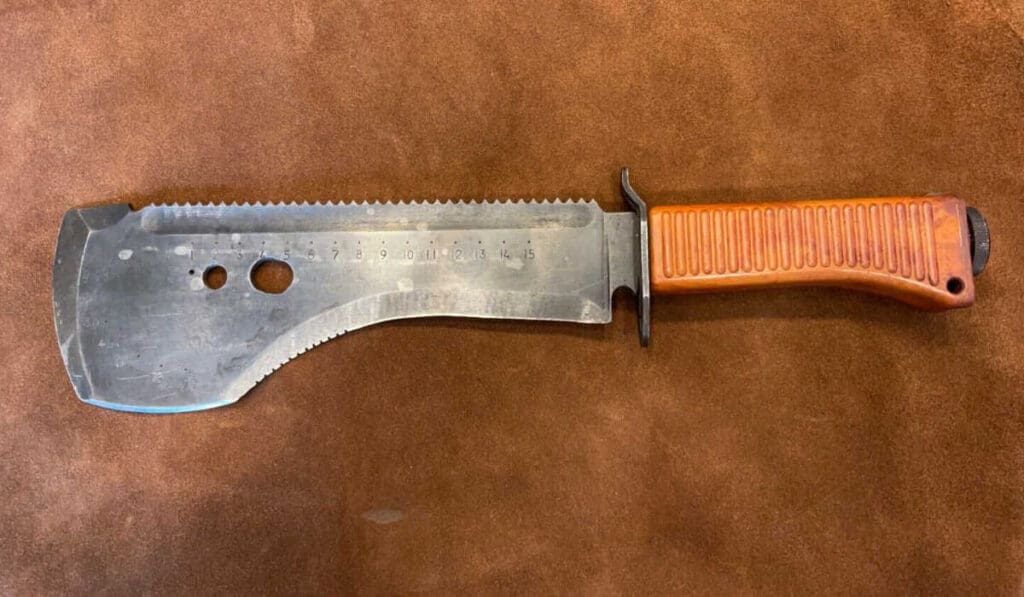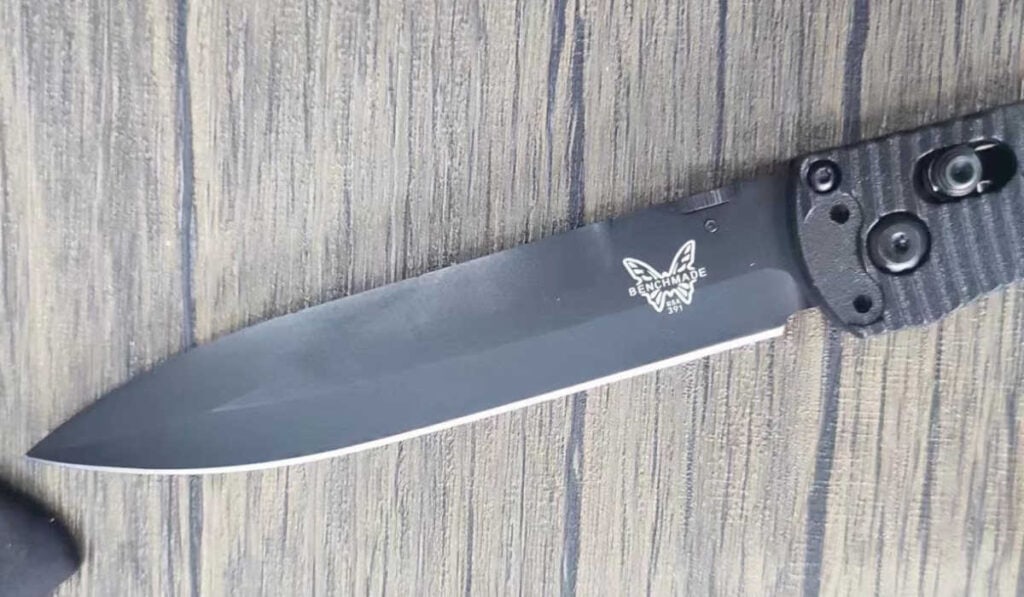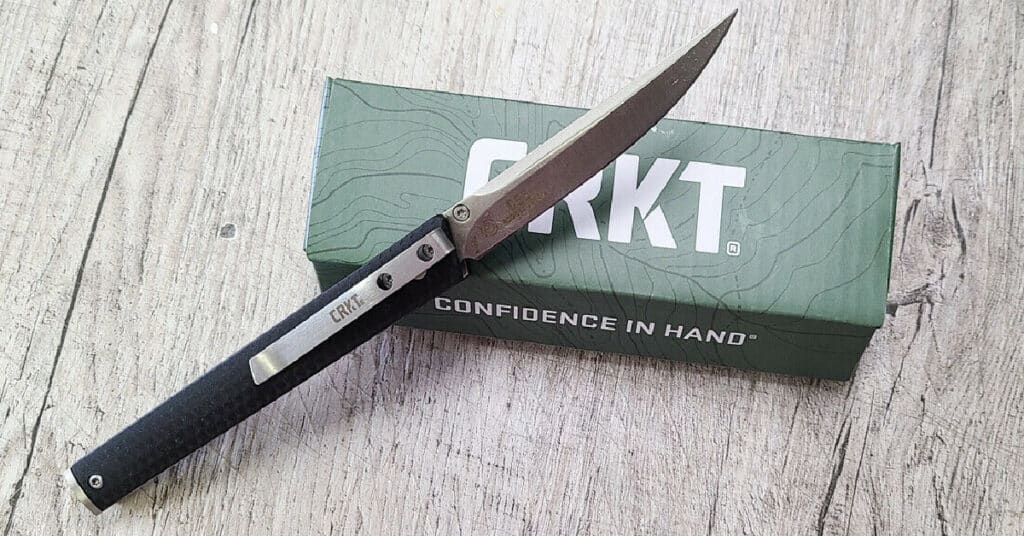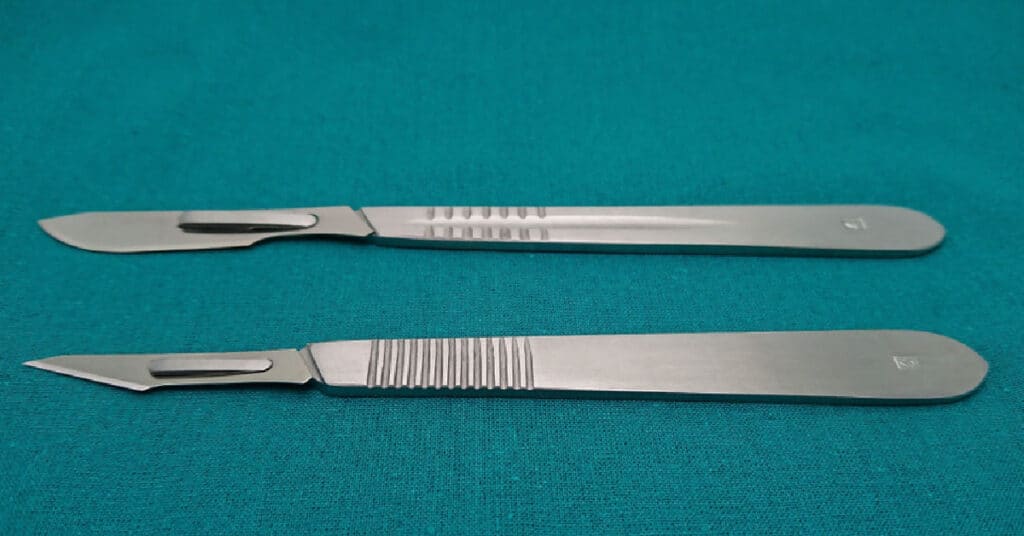Last updated on October 20th, 2023 at 09:05 pm
As an Amazon Associate I earn from qualifying purchases.
Kansas is one of the few states lenient to knife owners, especially after the law amendment in 2013. This state’s knife-friendly stance makes it a favorable place for knife enthusiasts. However, it’s crucial to understand the legal boundaries surrounding knife ownership, carrying, and usage in Kansas to stay compliant with the law.
Our Top Rated “50-State-Legal” Knives
*These knives are listed based on their broad legality across states, but always consult your local laws before making a purchase.
Does Kansas Have Statewide Preemption Knife Laws?
Yes, Kansas has statewide preemption knife laws. This means that local municipalities cannot implement more restrictive knife laws than those provided by the state. The law ensures a uniform set of regulations concerning knife ownership, carrying, manufacture, transportation, sale, or transfer across Kansas.
Any municipality law that contradicts these state provisions and was adopted before 1st July 2014 is considered null and void. No action will be taken against individuals violating these prohibitions if the offense occurred on or after 1st July 2013.
Kansas Knife Definitions
Understanding the definitions related to knives under Kansas law is fundamental to knowing what is legal and what isn’t in the state.
- Knife: Defined as a cutting instrument that can be dangerous or deadly due to its sharp edge(s) and/or point(s), including but not limited to straight-edged razors, dirks, stilettos, switchblades, and daggers.
- Throwing star: A throwing weapon without handles made of metal, having three (or more) points with one or more sharp edges, designed in geometric shapes (e.g., cross, diamond, polygon, star, or trefoil).
- Weapon: Refers to a firearm or a knife.
Legal Knives in Kansas
Kansas law permits the ownership of a wide variety of knives including:
- Large knives like bowies
- Stabbing knives like dirks, daggers, stilettos, etc.
- Disguised knives like cane swords, lipstick, and belt knives
- Switchblades and other automatic knives
- Gravity Knives
- Throwing knives (except throwing stars)
- Undetectable knives that a metal detector cannot recognize.
Illegal Knives in Kansas
The following items are illegal to possess or own in Kansas:
- Metal knuckles
- Throwing stars
- Blackjack
Manufacturing, buying, selling, or possessing these items is a criminal offense, as is using or intending to use any dangerous or deadly weapon against another person.
Kansas Knife Carry Laws
Open Carry
You can open carry all legal knives within Kansas, except on school grounds, government buildings, or if you are a convicted felon.
Concealed Carry
Concealed carry of all legal knives is permitted in Kansas. However, carrying dangerous or deadly weapons like billies, blackjacks, and slungshots is not allowed. Restrictions apply in schools, government buildings, and for convicted felons.
Exemptions
Certain individuals are exempted from these regulations, including:
- Law enforcement officers
- Individuals assisting law enforcement officers in making arrests or preserving the peace
- Personnel of prisons, jails, and other detention institutions on duty
- Members of the armed forces, reserve forces, and Kansas national guards on duty
- Any state-authorized individual to possess such weapons2.
Kansas Knife Length Laws
The previous limitation of a four-inch blade length was removed post-2013, now allowing knives of any length to be owned in Kansas.
Kansas Knife Laws by Demographic
Do Kansas knife laws apply to everybody regardless of age or criminal history? Read on to find out.
Who Can Carry and Buy Knives in Kansas?
Generally, anyone can carry and buy knives in Kansas. The restrictions on the sale and transfer of knives depend on the type of knife. It’s illegal to sell, manufacture, buy, or own certain weapons like throwing stars, metal knuckles, or blackjacks, irrespective of age or gender. There are no age restrictions on carrying legal knives, but location restrictions apply, such as in schools and government buildings unless authorized by law or for law enforcement officers, security personnel, or members of the armed forces or Kansas National Guard.
Can a Felon Carry a Knife in Kansas?
It’s a level 8, non-person felony for a convicted felon to possess or carry a weapon in Kansas, including knives considered dangerous or deadly.
Kansas Knife Laws FAQs
Are butterfly knives illegal in Kansas?
Butterfly knives, also known as balisongs, are legal in Kansas. There are no specific restrictions against the ownership, possession, sale, or transfer of butterfly knives within the state.
Are switchblades illegal in Kansas?
Switchblades became legal in Kansas following the law amendment in 2013. You can own, carry, buy, or sell them without breaking the law.
Are brass knuckles legal in Kansas?
Brass knuckles, also known as metal knuckles, are illegal in Kansas. Manufacturing, buying, selling, or possessing metal knuckles is considered a criminal offense.
Are OTF knives legal in Kansas?
Out-The-Front (OTF) knives are legal in Kansas, and the state doesn’t impose any specific restrictions against their ownership, sale, or transfer.
Are gravity knives legal in Kansas?
Gravity knives are legal in Kansas. These knives, which operate by the force of gravity or wrist movement, are allowed in the state without any specific restrictions.
Kansas State Knife Law References
Official Sources of Kansas’ Knife Laws
- Kansas State Legislature under Statute 2012, Article 63, sections 21-6301 and 21-6302 which concern criminal use and carrying of weapons respectively.
- Definitions related to knives under Kansas law are provided, with a knife defined as a cutting instrument dangerous or deadly due to its sharp edge(s) and/or point(s).
Significant Court Cases
| Name/Title | Summary |
|---|---|
| Wichita man wrongful conviction case | A Wichita man was wrongfully convicted for possession of a nine-inch folding knife which the district court concluded met the legal definition of a weapon. |
| 2020 Kansas Supreme Court Decision (Statute 21-6304) | The Supreme Court found uncertainty in the residual phrase in Kan. Stat. Ann. 21-6304 defining a knife, rendering the law unconstitutionally vague. |
| State v. Harris | The State prosecuted Harris for possessing a 3.5-inch blade under K.S.A. 2019 Supp. 21-6304 which defined a knife in a vague manner leading to arbitrary enforcement. |
Timeline of Major Changes in Kansas’ Knife Law History
- 2013: Effective July 1, 2013, Kansas law changed significantly with the passage of HB 2033, leading to the decriminalization of possession or carry of switchblades, dirks, daggers, stilettos, and throwing stars, among other changes.
- 2020: On February 12, 2020, HB 2652 was introduced, proposing modifications to K.S.A. 21-6304. The bill aims to exclude some pocket-knives from the prohibition, redefining a knife and adding exclusions for possessing a knife when used as a tool in lawful employment or for food preparation and consumption.
Conclusion
Kansas is, in my opinion, one of the most knife-friendly states since 2013. The lenient laws have enabled many people to own and carry the knives they desire. However, it’s essential to educate yourself and confirm with local law offices to ensure you are in complete compliance with Kansas knife laws. Now, with the right knowledge, you should be able to purchase and enjoy your favorite knife with confidence!
Do Sheepsfoot Blades Have A Purpose? (Cuz They’re Ugly…)
Spetsnaz Machetes – Blades Of The Russian Special Forces
What Is The Actual Purpose Of A Spear Point Knife Blade?
CRKT CEO Review – Coolest, Most Worthless Knife Ever?
How Sharp Is A Scalpel? (Is It Sharper Than A Razor?)
Can You Shave With A Knife? (Yes, Here’s How)
As an Amazon Associate I earn from qualifying purchases.
